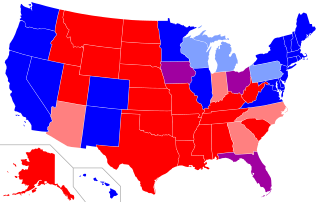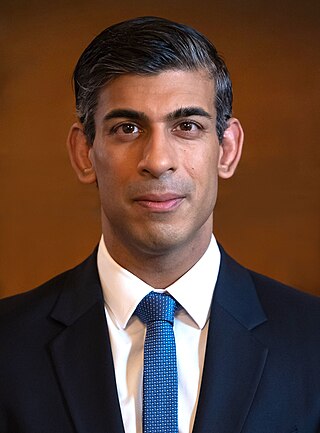| |||
All 14 seats in Congress | |||
|---|---|---|---|
| |||
 |
|---|
Parliamentary elections were held in the Federated States of Micronesia on 2 March 1999. [1] All candidates for seats in Congress ran as independents.
| |||
All 14 seats in Congress | |||
|---|---|---|---|
| |||
 |
|---|
Parliamentary elections were held in the Federated States of Micronesia on 2 March 1999. [1] All candidates for seats in Congress ran as independents.
| State | District | Candidate | Votes | % | Notes |
|---|---|---|---|---|---|
| Chuuk | At-Large | Redley A. Killion | 11,810 | 68.53 | Elected |
| Maketo Robert | 5,424 | 31.47 | |||
| Election District 1 | Nishima Yleizah | 1,966 | 46.57 | Elected | |
| Herner Braiel | 1,575 | 37.30 | |||
| Fiuling Ruben | 681 | 16.13 | |||
| Election District 2 | Roosevelt Kansou | 2,699 | 63.58 | Elected | |
| Baltazar Bossy | 1,546 | 36.42 | |||
| Election District 3 | Jack Fritz | — | Elected unopposed | ||
| Election District 4 | John Petewon | 1,644 | 54.22 | Elected | |
| Siwiter Sachuo | 1,388 | 45.78 | |||
| Election District 5 | Simeon Innocenti | 1,434 | 71.84 | Elected | |
| Ada Smith | 562 | 28.16 | |||
| Kosrae | At-Large | Jocob Nena | 1,982 | 53.42 | Elected |
| Yosiwo P. George | 1,728 | 46.58 | |||
| Election District | Claude Phillip | 1,432 | 38.89 | Elected | |
| Moses Mackwelung | 1,106 | 30.04 | |||
| Renster P. Andrew | 1,101 | 29.90 | |||
| Wilson I. J. Melander | 43 | 1.17 | |||
| Pohnpei | At-Large | Leo A. Falcam | 5,804 | 52.00 | Elected |
| Resio S. Moses | 5,358 | 48.00 | |||
| Election District 1 | Dohsis S. Halbert | — | Elected unopposed | ||
| Election District 2 | Wagner M. Lawrence | — | Elected unopposed | ||
| Election District 3 | Peter M. Christian | — | Elected unopposed | ||
| Yap | At-Large | Joseph Urusemal | 2,402 | 68.86 | Elected |
| Ragalmar Subolmar | 1,086 | 31.14 | |||
| Election District | Isaac V. Figir | 2,699 | 76.83 | Elected | |
| James Lukan | 814 | 23.17 | |||
| Source: Psephos, IPU | |||||

An election is a formal group decision-making process by which a population chooses an individual or multiple individuals to hold public office.

The 2000 United States presidential election was the 54th quadrennial presidential election, held on Tuesday, November 7, 2000. Republican candidate George W. Bush, the incumbent governor of Texas and eldest son of the 41st president, George H. W. Bush, won the election, defeating incumbent Vice President Al Gore. It was the fourth of five American presidential elections, and the first since 1888, in which the winning candidate lost the popular vote, and is considered one of the closest U.S. presidential elections, with long-standing controversy about the result. Gore conceded the election on December 13.
2024 (MMXXIV) is the current year, and is a leap year starting on Monday of the Gregorian calendar, the 2024th year of the Common Era (CE) and Anno Domini (AD) designations, the 24th year of the 3rd millennium and the 21st century, and the 5th year of the 2020s decade.

The Indian National Congress (INC), colloquially the Congress Party or simply the Congress, is a political party in India with widespread roots. Founded in 1885, it was the first modern nationalist movement to emerge in the British Empire in Asia and Africa. From the late 19th century, and especially after 1920, under the leadership of Mahatma Gandhi, the Congress became the principal leader of the Indian independence movement. The Congress led India to independence from the United Kingdom, and significantly influenced other anti-colonial nationalist movements in the British Empire.
The incumbent is the current holder of an office or position. In an election, the incumbent is the person holding or acting in the position that is up for election, regardless of whether they are seeking re-election.

The 2008 United States presidential election was the 56th quadrennial presidential election, held on November 4, 2008. The Democratic ticket of Barack Obama, the junior senator from Illinois, and Joe Biden, the senior senator from Delaware, defeated the Republican ticket of John McCain, the senior senator from Arizona, and Sarah Palin, the governor of Alaska. Obama became the first African American to be elected to the presidency, as well as being only the third sitting United States senator elected president, joining Warren G. Harding and John F. Kennedy. Meanwhile, this was only the second successful all-senator ticket since the 1960 election and is the only election where both major party nominees were sitting senators. This was the first election since 1952 in which neither the incumbent president nor vice president was on the ballot.

Starting with the 2000 United States presidential election, the terms "red state" and "blue state" have referred to U.S. states whose voters vote predominantly for one party — the Republican Party in red states and the Democratic Party in blue states — in presidential and other statewide elections. By contrast, states where the vote fluctuates between the Democratic and Republican candidates are known as "swing states" or "purple states". Examining patterns within states reveals that the reversal of the two parties' geographic bases has happened at the state level, but it is more complicated locally, with urban-rural divides associated with many of the largest changes.

The 2004 United States presidential election was the 55th quadrennial presidential election, held on Tuesday, November 2, 2004. The Republican ticket of incumbent President George W. Bush and his running mate incumbent Vice President Dick Cheney were elected to a second term, defeating the Democratic ticket of John Kerry, a United States senator from Massachusetts and his running mate John Edwards, a United States senator from North Carolina.
An independent, non-partisan politician or non-affiliated politician is a politician not affiliated with any political party or bureaucratic association. There are numerous reasons why someone may stand for office as an independent.
The Labour Party is a political party in the United Kingdom that has been described as an alliance of social democrats, democratic socialists, and trade unionists. The Labour Party sits on the centre-left of the political spectrum. In all general elections since 1922, Labour has been either the governing party or the Official Opposition. There have been six Labour prime ministers and thirteen Labour ministries. Since the 2010 general election, it has been the second-largest UK political party by the number of votes cast, behind the Conservative Party and ahead of the Liberal Democrats. The party holds the annual Labour Party Conference.

The 2012 United States presidential election was the 57th quadrennial presidential election, held on Tuesday, November 6, 2012. Incumbent Democratic President Barack Obama and his running mate, incumbent Vice President Joe Biden, were re-elected to a second term. They defeated the Republican ticket of former Governor Mitt Romney of Massachusetts and Representative Paul Ryan of Wisconsin.

The 2016 United States presidential election was the 58th quadrennial presidential election, held on Tuesday, November 8, 2016. The Republican ticket, businessman Donald Trump and Indiana governor Mike Pence defeated the Democratic ticket of former secretary of state and First Lady of the United States Hillary Clinton and the junior senator from Virginia, Tim Kaine, in what was considered one of the biggest political upsets in American history.

The election of the president and the vice president of the United States is an indirect election in which citizens of the United States who are registered to vote in one of the fifty U.S. states or in Washington, D.C., cast ballots not directly for those offices, but instead for members of the Electoral College. These electors then cast direct votes, known as electoral votes, for president, and for vice president. The candidate who receives an absolute majority of electoral votes is then elected to that office. If no candidate receives an absolute majority of the votes for president, the House of Representatives elects the president; likewise if no one receives an absolute majority of the votes for vice president, then the Senate elects the vice president.

General elections were held in India in seven phases from 11 April to 19 May 2019 to elect the members of the 17th Lok Sabha. Votes were counted and the result was declared on 23 May. The election resulted in a landslide victory for the BJP which won 303 seats and formed the government.

The Election Commission of India (ECI) is a constitutional body. It was established by the Constitution of India to conduct and regulate elections in the country. Article 324 of the Constitution provides that the power of superintendence, direction, and control of elections to parliament, state legislatures, the office of the president of India, and the office of vice-president of India shall be vested in the election commission. Thus, the Election Commission is an all-India body in the sense that it is common to both the Central government and the state governments.

The 2020 United States presidential election was the 59th quadrennial presidential election, held on Tuesday, November 3, 2020. The Democratic ticket of former vice president Joe Biden and the junior U.S. senator from California Kamala Harris defeated the incumbent Republican president, Donald Trump, and vice president, Mike Pence. The election took place against the backdrop of the global COVID-19 pandemic and related recession. The election saw the highest voter turnout by percentage since 1900, with each of the two main tickets receiving more than 74 million votes, surpassing Barack Obama's record of 69.5 million votes from 2008. Biden received more than 81 million votes, the most votes ever cast for a candidate in a U.S. presidential election.

The 2024 United States elections are scheduled to be held on Tuesday, November 5, 2024. During this presidential election year, the president and vice president will be elected. In addition, all 435 seats in the United States House of Representatives and 34 of the 100 seats in the United States Senate will be contested to determine the membership of the 119th United States Congress. Thirteen state and territorial governorships and numerous other state and local elections will also be contested.

The 2024 United States presidential election will be the 60th quadrennial presidential election, scheduled for Tuesday, November 5, 2024. Voters will elect a president and vice president for a term of four years. Incumbent President Joe Biden, a member of the Democratic Party, is running for re-election. His predecessor Donald Trump, a member of the Republican Party, is running for re-election to a second, nonconsecutive term. If both Biden and Trump are nominated by their respective parties, it would mark the first presidential rematch since 1956. A number of primary election challengers have also declared their candidacies for the nomination of both major parties. The winner of this election is scheduled to be inaugurated on January 20, 2025. It will occur at the same time as elections to the U.S. Senate and the U.S. House; several states will also be holding gubernatorial and state legislative elections.

The next United Kingdom general election must be held no later than 28 January 2025. It will determine the composition of the House of Commons, which determines the next Government of the United Kingdom. Significant constituency boundary changes will be in effect, the first such changes since before the 2010 general election. Prime Minister Rishi Sunak has stated his intention to hold the election in the second half of 2024.